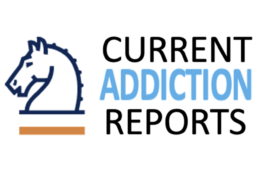Former Chief Constable Simon Bailey appeared on BBC Radio 4 The World at One with Sarah Montague, 11 November 2021
As Chief Constable of Norfolk he led the UK’s national police operations against child abuse. He now has important comments to make about the way porn is influencing our society, and not for the better.
Transcript
(some of the words were not clear)
Sarah Montague (SM – BBC presenter): Now the former chief constable Simon Bailey (SB) told us that teenagers’ access to pornography is leading young men to abuse young women and is driving misogyny in society. He recently stepped down as the National Police Chiefs’ Council lead on child protection and we will hear that interview in a moment. But first, as we reported a few weeks ago, 90% of all 14-year-olds have seen some kind of pornography according to the Brook Centre. A few weeks ago, I sat in on a class about pornography at a school in South London, and heard from a group of 14-year-olds…
SM: How old were you when you first saw any form of pornography?
Boy: I was 10.
SM: You were 10. And how did you come across it?
Boy: I was watching something on a normal website… and it was a pop-up.
SM: How did you feel when you saw it? Were you a bit shocked?
Boy: Yes I was. When I was 10 I didn’t even know those stuff was on the Internet.
SM: But that’s what I was wondering, you guys. When you first come across it, because like now at 14, all of you have already seen something. Do you wish that you hadn’t seen it?
Group: Yeah, I feel that it really changes your perspective on how you see women, and think are everyone must look like this, this woman looks like that.
SM; And also do you wish you hadn’t seen it, then? You would’ve what, liked to have been older?
All: Yes.
Girl: I just wished I hadn’t seen it…
Boy: I would have like to experience it for myself.
—
Sarah Montague (in studio): Well, when McGill University studied popular videos on Pornhub, 88% of them included physical aggression, things like choking and rape. I asked the former Chief Constable Simon Bailey, who is now the chair of the Policing Institute for the Eastern Region at Anglia Ruskin University, what the police were seeing as a consequence of children seeing pornography.
Simon Bailey: We are seeing it in a way that relationships are being formed, we are seeing that very, very clearly through the 54,000 testimonies that have now been shared on the “Everyone’s Invited” website. I think we’re seeing that in content on social media and we are seeing it in, what I perceived to be, the misogyny that is now pervading society more generally.
SM: You listed a lot of things there…
SB: Uh-huh.
SM: Would you say that it is down to, or contributed to, by pornography?
SB: I think it is a contributory factor, and there is a raft of evidence that demonstrates that there is an ever-increasing number of children, young people, that are viewing pornography. They can do that without any form of age verification being required, and that is then framing and shaping their thoughts on relationships, on sex, and in my personal view, is having a really detrimental effect on young people, how boys in particular treat young women, and I don’t think we need to look too much further than what the OFSTED inspection through Amanda Spielman found as well when they went into schools and there is that acknowledgement that there is a real problem.
SM: I mean there are reports that some young girls who say that when they kissed a boy, the boy reaches to start to put their hands around their throat, which is something that comes from pornography, one imagines.
SB: Yes, I don’t see where else they would be getting that kind of guidance from, or a view that this is normal, when that is not normal. They are concerning and worrying behaviours. Porn is framing young men’s lives in a way that, I don’t suspect we ever envisaged, but I think we now have to recognise that, actually it is present, it is there. I think the stats already show that it was viewed more frequently during a period of lockdown, and unless there is a concerted effort to regulate children’s access to pornography, to make sure that education in schools is really addressing this head on, and parents start to become more comfortable with what I would always recognise, and have discussed with parents, is a difficult conversation. But actually, those conversations need to be taking place, and need to be taking place now.
SM: You talked about the “Everyone’s Invited” website, which is where women, young teenagers, often record their experiences of abuse at the hands of men.
SB: Yes.
SM: You described porn as a contributory factor. Do you think it is the main factor?
SB: Yes, I think it is. The evidence we are now seeing would suggest it is the main factor and you only have to read a few of the “Everyone’s Invited” testimonies just to see, what I would perceive to be something that the abuser has seen in a pornographic film, a video, that they are then acting out in real life.
SM: So, when it comes to what can be done about it, do you have any answers?
SB: The conversation has to start at home, and we are starting to see some evidence, that where are parents are engaging with their sons and daughters, it is having a positive effect. And in particular, with the really worrying increase in the number of young girls that are sharing self-generated imagery of themselves, naked. It is those worrying trends where parents need to become really aware of this. They need to be having the conversations with their children at a very early age.
That needs to be reinforced in school, in the right manner, delivered by the right people, and I think that there is a far broader issue that actually says: Society is now having to deal with the horror of the Wayne Couzens murder of Sarah, and actually there is a really big issue for society around the whole issue of violence against women and girls. And when you look at what people are now viewing online, I think there is a link, and I think pornography is driving some of those really concerning behaviours.
SM: So what do you do about those who are making this material and putting it online?
SB: Well, there are a number of responsible providers of porn that now recognise that actually, they don’t want children viewing the material on their sites, and they recognise it is their responsibility to stop that. Now of course, that is easier said than done. Government came close to bringing about age verification, then decided that the time was not right. I think that needs to be re-visited, and that’s an important step. And I absolutely recognise that there will be children that are able to get around that, but actually if you make it far harder than it currently is, that will serve as a deterrent.
SM: On that age verification, the Government says, look, we may have dropped age verification overtly, but we are aiming for the same effect in the way we are proposing to do it.
SB: In my opinion, Sarah, it cannot be right, that, if as a 14-year-old, you want to put a bet on a horse, you can’t because online bookies are required to verify the age of the person placing the bet, but as a 14-year-old you can very quickly, within two or three clicks, find hardcore pornography. Now that, I think, should be a cause of concern for all of us and I recognise that it’s not fool-proof, but we should be making it far harder.
SM: And the penalty for any platforms or porn providers, where it is shown that young teenagers can access the material, should be what?
SB: Of course, that is all part of the Online Harms white paper, and that is now going through the development of the Bill. So, I think it’s still a little way off, before the Bill becomes passed into law, but actually there is that conversation that is taking place now that as we have discussed a growing body of evidence that should really be giving us all a cause for concern.
SM: Simon Bailey. We asked the government for an interview about what they are going to do to address the problem. They said “no”, but the department for Culture, Media and Sport said in a statement that the Online Safety Bill will protect children from the vast majority of pornography online. And, while it doesn’t mandate the use of specific technologies, the regulator OFCOM, will take a robust approach to sites that pose the higher risks of harm, and that may include recommending the use of age assurance or verification technologies. Well, you won’t be surprised to hear that it is a subject we will be returning to on this programme.




